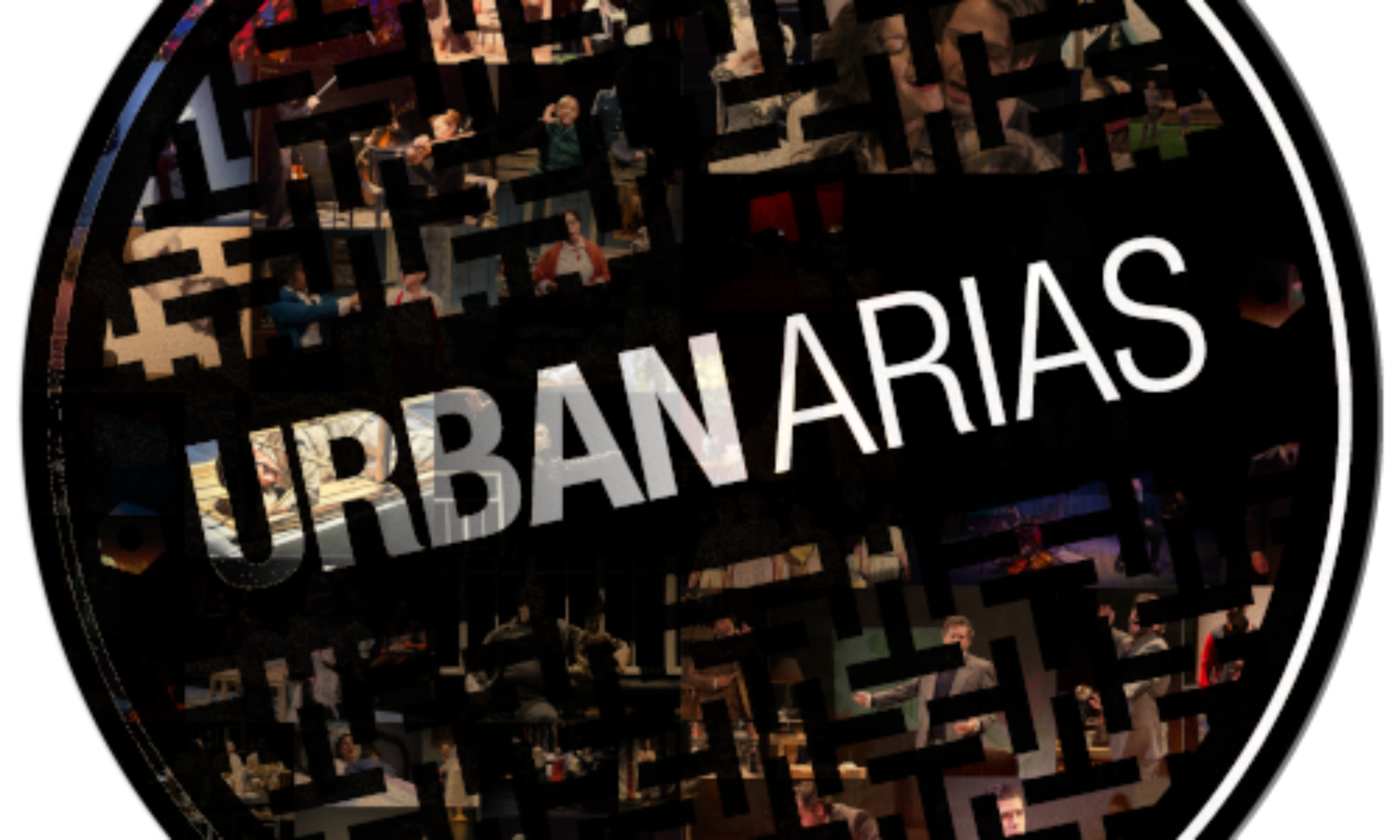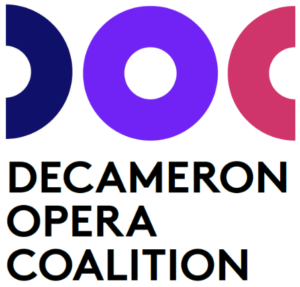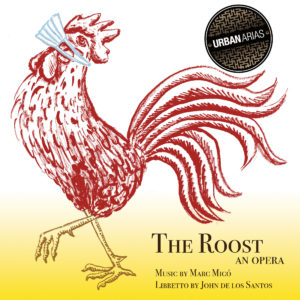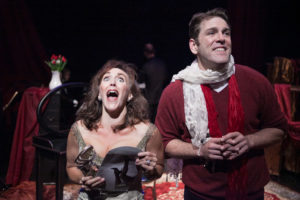 We love having soprano Emily Pulley at UrbanArias. She’s a great actress who sings her face off, and she’s a seriously funny lady. She also speaks with eloquence about the art form – watch the video below! Emily brings depth and nuance to every role she sings, whether it’s deranged Alice in Part 2 of Daniel Felsenfeld’s She, After or a frustrated daughter in Jake Heggie’s Three Decembers.
We love having soprano Emily Pulley at UrbanArias. She’s a great actress who sings her face off, and she’s a seriously funny lady. She also speaks with eloquence about the art form – watch the video below! Emily brings depth and nuance to every role she sings, whether it’s deranged Alice in Part 2 of Daniel Felsenfeld’s She, After or a frustrated daughter in Jake Heggie’s Three Decembers.
How did you become involved in The Roost? What spoke to you about the project?
I received an email from Bob Wood this summer and was delighted to have the opportunity to work with him again. I thought the idea of connecting our present situation to a 14th-century work written during the time of a plague was intriguing, and I loved the idea of collaborating with so many different companies to create streaming content.
What’s it been like being an artist during a pandemic?
You play Jaclyn, Kat’s mother, in The Roost. Tell us about her.
As I told our fearless director, everyone knows at least one “Jaclyn!” We can all relate to her frustration with the restrictions we’re facing during these times, but she is so wrapped up in her own feelings that she can’t find it in herself to think about what may be best for others as well. My goal was to make her sympathetic by revealing her vulnerability and fear – not to justify her behavior, but perhaps to shed some light on her motives and show that she has the potential to change if she can find inspiration and purpose outside her own version of reality.
Was this your first opera-as-film project?
This was my fourth tech-based opera project, but it had the most complicated degree of production, with multiple locations, day and evening shoots, drones(!), etc. We’re all gaining expertise and seeing new possibilities, and, as much as I’m longing to get back on to a stage with an in-person audience, it’s interesting to be a part of that experiment.
I hear Bob and I aren’t your only UrbanArias friends…
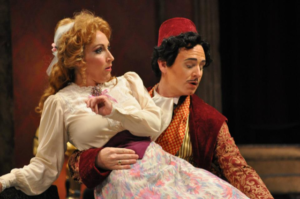 I was thrilled to hear that Sharin (Apostolou) and Ryan (MacPherson) were going to be my daughter and son-in-law in this project! I had worked with them both individually (Sharin was at Central City with me back in 2006, and Ryan was Remendado to my Micaela in Opera Omaha’s Carmen in 2003 and Alfredo to my Rosalinda in Virginia Opera’s Die Fledermaus in 2012). This was my first time to collaborate with them as a couple, and it was beautiful to watch them respond to each other, both on and off camera.
I was thrilled to hear that Sharin (Apostolou) and Ryan (MacPherson) were going to be my daughter and son-in-law in this project! I had worked with them both individually (Sharin was at Central City with me back in 2006, and Ryan was Remendado to my Micaela in Opera Omaha’s Carmen in 2003 and Alfredo to my Rosalinda in Virginia Opera’s Die Fledermaus in 2012). This was my first time to collaborate with them as a couple, and it was beautiful to watch them respond to each other, both on and off camera.
Get your tickets for The Roost here and join us on October 16 for the premiere!
Tales From A Safe Distance will be available on-demand until December 31.
